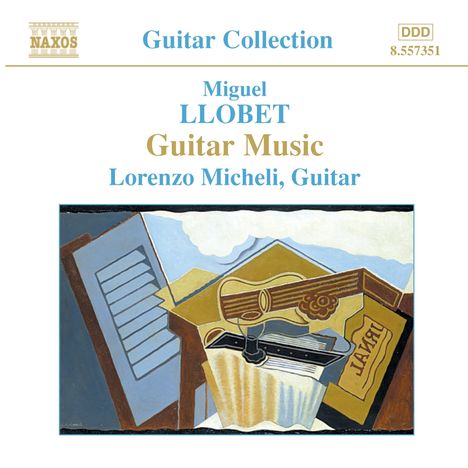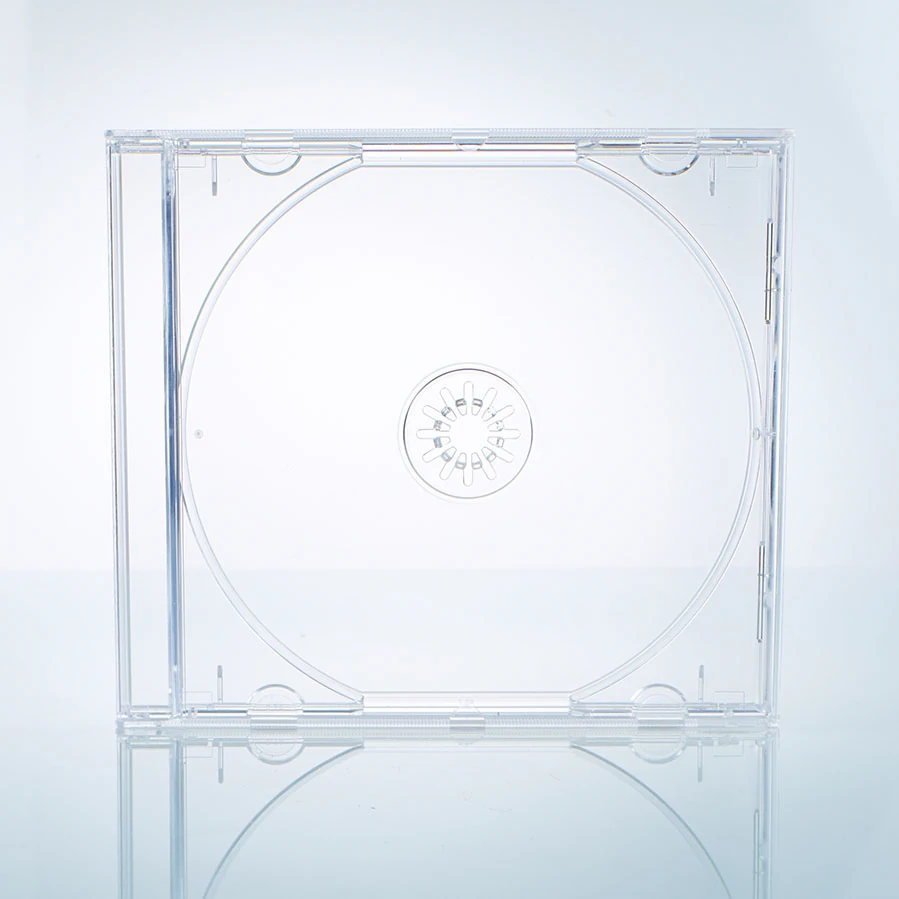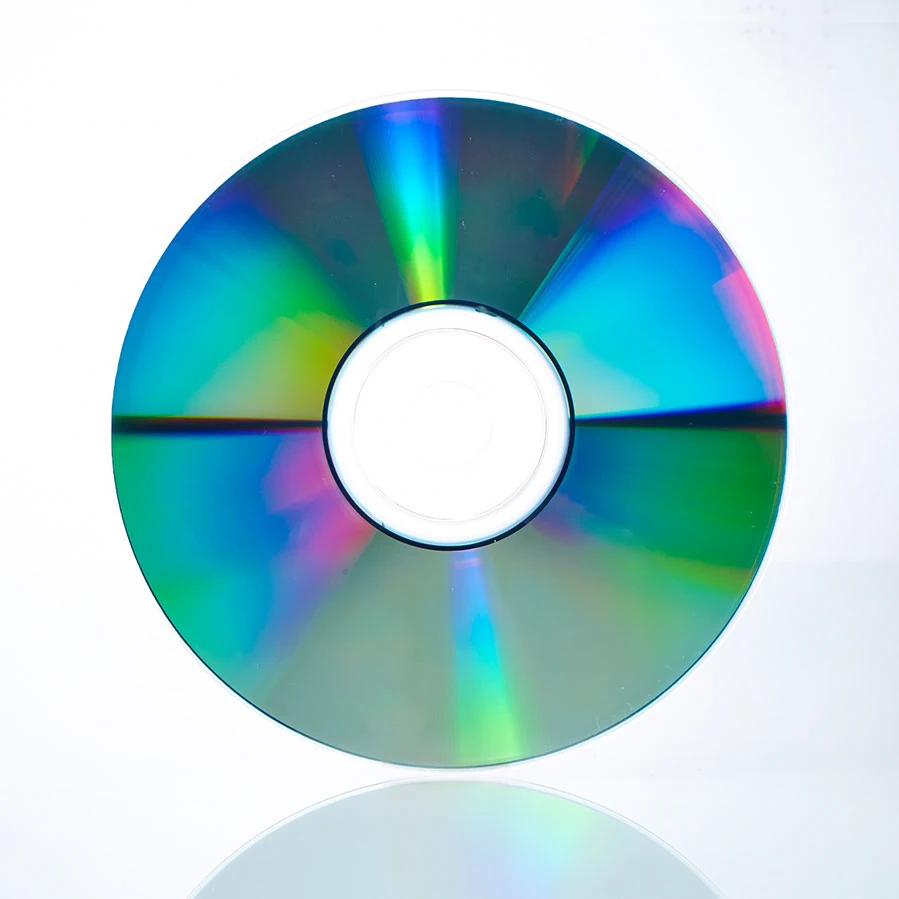Miguel Llobet: Gitarrenwerke auf CD
Gitarrenwerke
Herkömmliche CD, die mit allen CD-Playern und Computerlaufwerken, aber auch mit den meisten SACD- oder Multiplayern abspielbar ist.
(soweit verfügbar beim Lieferanten)
13 Catala Folksongs; Scherzo-Vals; Estudio Capricho; Mazurka; Respuesta; 5 Preludes; Mazurka for Federico Bufaletti; 4 Folksongs; Study in E major; Romanza; Variations on a theme by Sor
- Künstler:
- Lorenzo Micheli, Gitarre
- Label:
- Naxos
- Aufnahmejahr ca.:
- 2002
- Artikelnummer:
- 3068148
- UPC/EAN:
- 0747313235124
- Erscheinungstermin:
- 24.5.2004
- Serie:
- Naxos Guitar Series
Der Beginn des zwanzigsten Jahrhunderts läutete eine neue Ära für die klassische Gitarre ein. Mit einem neuen Facelifting und einigen strukturellen Veränderungen sowie den Auftritten und Kompositionen von Francisco Tárrega wurde die Gitarre auf den Weg gebracht und fest etabliert, so dass sie sich heute zu einem der am weitesten verbreiteten Saiteninstrumente entwickelt hat. Zwei Gitarristen, Miguel Llobet und Andrés Segovia (1893-1987), sind weitgehend für diese gestiegene Popularität verantwortlich. Segovia hat nicht bei Tárrega studiert; er räumt jedoch einen indirekten Einfluss durch Llobet ein. Llobet unternahm die notwendigen Schritte, um das fortzusetzen, was Tárrega begonnen hatte: neue Musik zu schaffen, Transkriptionen zeitgenössischer Komponisten anzufertigen, pädagogische Praktiken für die Gitarre zu entwickeln und zu erweitern. Tárrega ging nie außerhalb Westeuropas auf Tournee, während Llobet zu Beginn des zwanzigsten Jahrhunderts in das Leben eines internationalen Konzertkünstlers eintrat, indem er zu Veranstaltungsorten auf anderen Kontinenten reiste.
Miguel Llobet wird das Verdienst zugeschrieben, die klassische Gitarre in die moderne musikalische Welt der internationalen Konzerttourneen eingeführt zu haben, neue Werke zum Repertoire beizutragen, dem Publikum neue Werke von Komponisten wie Falla, Villa Lobos, Ponce und anderen vorzustellen, die pädagogischen Prinzipien von Tárrega zu lehren, zu organisieren und zu erweitern und, was von größter Bedeutung ist, die ersten elektrischen Aufnahmen der klassischen Gitarre gemacht zu haben.
Product Information
The opening of the twentieth century ushered in a new era for the classical guitar. With a new face-lift and some structural changes, as well as the performances and compositions of Francisco Tárrega, the guitar was launched and firmly established on a course that has seen it develop into one of the most widespread string instruments today. Two guitarists, Miguel Llobet and Andrés Segovia (1893-1987), are largely responsible for this increased popularity. Segovia did not study with Tárrega; he admits, however, to an indirect influence through Llobet. Llobet took the necessary steps to continue what Tárrega had started: create new music, make transcriptions of contemporary composers, develop and expand pedagogical practices for the guitar. Tárrega never toured outside Western Europe, whereas Llobet moved into the life of an international concert artist at the opening of the twentieth century by travelling to venues on other continents.
To Miguel Llobet is given the credit for bringing the classic guitar into the modern musical world of international concert tours, for contributing new works to the repertoire, for presenting to the public in performance the new works of such composers as Falla, Villa Lobos, Ponce and others, for teaching, organizing and expanding the pedagogical principles of Tárrega, and, of utmost importance, for having made the first electric recordings of the classic guitar.
Disk 1 von 1 (CD)
-
1 Scherzo - Vals
-
2 Estudio Capricho
-
3 Mazurka
-
4 13 Catalan Folksongs: L'hereu riera
-
5 13 Catalan Folksongs: El testament d'Amelia
-
6 13 Catalan Folksongs: La nit de Nadal (El Desembre congelat)
-
7 13 Catalan Folksongs: El mestre
-
8 13 Catalan Folksongs: Le preco de Lleida
-
9 13 Catalan Folksongs: La pastoreta
-
10 13 Catalan Folksongs: La filla del marxant
-
11 13 Catalan Folksongs: Lo rossinyol
-
12 13 Catalan Folksongs: Plany
-
13 13 Catalan Folksongs: El noi de la mare
-
14 13 Catalan Folksongs: La filadora
-
15 13 Catalan Folksongs: Lo fill del rey
-
16 13 Catalan Folksongs: Canco del lladre
-
17 Respuesta (Impromptu)
-
18 5 Preludes: Prelude (a Rosita Lloret)
-
19 5 Preludes: Prelude in E major
-
20 5 Preludes: Prelude in D major (a Maria Luisa Anido)
-
21 5 Preludes: Prelude in A major
-
22 5 Preludes: Prelude - Original
-
23 Mazurka for Federico Bufaletti
-
24 4 Folksongs: Estilo popular argentino in E minor
-
25 4 Folksongs: Estilo popular argentino in D major
-
26 4 Folksongs: Estilo popular argentino in E# minor
-
27 4 Folksongs: Leonesa
-
28 Study in E major
-
29 Romanza
-
30 Variations on a Theme of Sor, Op. 15: Theme
-
31 Variations on a Theme of Sor, Op. 15: Var. I (Sor)
-
32 Variations on a Theme of Sor, Op. 15: Var. II (Sor)
-
33 Variations On A Theme Of Sor, Op. 15: Var. Iii
-
34 Variations on a Theme of Sor, Op. 15: Var. IV
-
35 Variations on a Theme of Sor, Op. 15: Var. V
-
36 Variations on a Theme of Sor, Op. 15: Var. VI
-
37 Variations on a Theme of Sor, Op. 15: Intermezzo. Andante molto espressivo
-
38 Variations On A Theme Of Sor, Op. 15: Var. Vii
-
39 Variations On A Theme Of Sor, Op. 15: Var. Viii
-
40 Variations on a Theme of Sor, Op. 15: Var. IX - Toda esta variacion en sonidos harmonicos
-
41 Variations on a Theme of Sor, Op. 15: Var. X - Toda esta variacion con la mano izquierda sola
Mehr von Miguel Llobet






